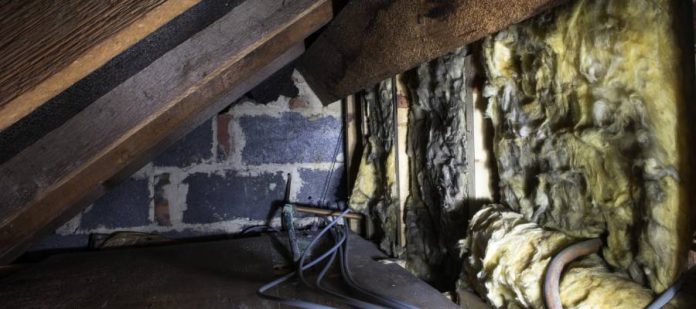Insulation quietly works behind the scenes to maintain energy efficiency and comfort, controlling temperatures while reducing energy bills. However, over time, insulation degrades, leading to less effective temperature control and higher energy costs. Discover the various causes of degrading insulation in your home to help you take preventative measures.
1. Age and Wear
Like most materials in your home, insulation isn’t immune to the effects of time. Even the best-installed insulation breaks down after years of use. This natural wear and tear reduces effectiveness, resulting in uneven temperatures and increased energy bills.
It may be time to upgrade your home with new insulation if it’s over 20 years since installation. Upgrading to more modern materials, like fiberglass and mineral wool, could significantly improve your home’s energy efficiency.
2. Water Damage
Water is one of the biggest enemies of effective insulation. Leaks from roofs, pipes, or high humidity allow moisture to seep into your insulation. Wet insulation loses effectiveness and becomes a breeding ground for mold and mildew.
Regularly inspecting your home for leaks and addressing them protects your insulation. Consider using moisture-resistant insulation materials in areas prone to dampness.
3. Pest Infestations
Pests like rodents and insects find insulation and inviting nesting material. These unwanted guests chew through insulation, displacing it and rendering it ineffective. Over time, this leads to significant gaps in your insulation coverage, making your home less energy-efficient.
Regular pest control measures help you avoid this issue. If you suspect a pest problem, request help from an exterminator to prevent further damage.
4. Poor Installation
Even the best insulation materials won’t perform well when improperly installed. Poor installation leaves gaps, compresses the materials, or fails to cover all necessary areas. These errors drastically reduce the effectiveness of your insulation.
Hiring experienced professionals for insulation installation is crucial to ensure it’s done right. Proper installation saves you money and headaches down the line.
5. Settling
Over time, the structure of your home may settle, causing shifts that impact your insulation. This settling creates gaps or compresses insulation materials, reducing their effectiveness. Uneven floors and cracks in the walls indicate that your home may be settling.
Regular home maintenance and inspections help you catch these issues early. Promptly addressing them maintains the integrity of your insulation.
Maintaining effective insulation is crucial for keeping your home comfortable and energy-efficient. By understanding these common causes of degrading insulation in your home, you may take steps to mitigate them.
Regular inspections, timely repairs, and proper installation can go a long way in preserving your insulation’s effectiveness. Don’t wait until you notice problems; proactive maintenance saves money and keeps your home cozy year-round.























